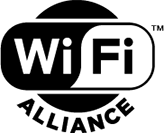Lately not a week goes by without a major announcement about the explosion of Wi-Fi® availability. This week, we’re seeing details about New York City’s plan to roll out free city-wide municipal Wi-Fi through thousands of kiosks that will be deployed at locations currently occupied by pay phones.
The days of Wi-Fi being about getting online in a few coffee shops are truly over. Now, not only is Wi-Fi most people’s default mode of connectivity to the internet, but is “emerging as a means for ubiquitous connectivity.” With that ubiquity comes a truly mobile experience for users, enabling them to stay connected whenever and virtually wherever they want. And people don’t just want to be connected at home and work, but en route to work, while relaxing at the park, or while at the stadium watching the game.
For urban users, Wi-Fi is nearly an anytime, anywhere connection. iPass reports there will be 47M public hotspots worldwide by the end of the year, and that number continues to soar. Driven in part by customer data demand, what gained momentum as an effective way for mobile providers to offload Wi-Fi from their networks, is now taking shape in some unique ways. Cable providers have made big bets on Wi-Fi, and are seeing its value as a way to keep their customers satisfied, leading to a series of rapid cable Wi-Fi deployments in 2014. Cable operators are continuing to activate “homespots” to make use of extra capacity and blanket dense areas with easy-to-use Wi-Fi. Major cities and urban transportation systems (New York and Shanghai) are announcing Wi-Fi networks on public transportation. Even Major League Baseball and the National Football League have recently discovered the “treasure trove” that is Wi-Fi.
The next step: Bringing it all together seamlessly
Wi-Fi’s burgeoning footprint is exciting at face value, but the industry migration to a more seamless experience is setting the stage for an important transformation of the mobility experience, in which Wi-Fi is as primary as LTE, if not more so.
Recently, San Francisco and San Jose set up free public Wi-Fi networks, which also enable Wi-Fi roaming between their cities and also along the River Thames in London. The foundation for these Wi-Fi roaming agreements is a technology called Passpoint™, which offers seamless authentication and a cellular-like experience when connecting to Wi-Fi networks. Passpoint solves the problem of easy network authentication, enabling cities like San Francisco and San Jose to become their own breed of service providers. Earlier this year, Boingo launched Passpoint at 21 U.S. airports, and Time Warner Cable launched its own Passpoint network in several cities across the United States.
These deployments are just the tip of the iceberg – look for many more in 2015. We are surely at an inflection point for the industry and for end users, on a path to seamless Wi-Fi virtually everywhere.
The statements and opinions by each Wi-Fi Alliance member and those providing comments are theirs alone, and do not reflect the opinions or views of Wi-Fi Alliance or any other member. Wi-Fi Alliance is not responsible for the accuracy of any of the information provided by any member in posting to or commenting on this blog. Concerns should be directed to info@wi-fi.org.



Add new comment